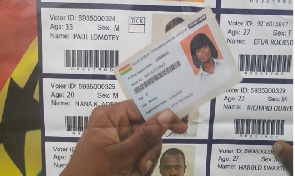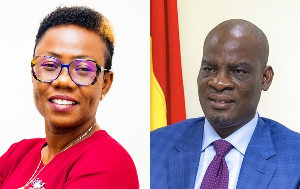As we (Ghanaians) prepare to exercise our democratic right to vote in this year's general elections, it's crucial to be mindful of the threat of information disorder. In today's digital age, the spread of misinformation and disinformation can have significant consequences on our decision-making processes, and ultimately, the outcome of the December 7th elections.
Information disorder refers to the deliberate creation and dissemination of false information, aimed at misleading and manipulating public opinion. This can take many forms, including fake news articles, doctored images, and manipulated videos. The goal of those who engage in information disorder is to confuse, divide, and influence the electorate, often for political gain.
The dangers of information disorder are real. In the past, we've seen how false information can lead to social unrest, violence, and even loss of lives. In the context of elections, information disorder can undermine the integrity of the electoral process, erode trust in institutions, and compromise the credibility of the outcome.
So, what can we do to protect ourselves and our democracy from information disorder?
Firstly, it's essential to be critical of the information we consume. Verify the sources of the information you come across, and be wary of sensational or inflammatory headlines. Check if the information is corroborated by other credible sources.
Secondly, fact-checking websites and organizations, such as Fact-Check Ghana and GhanaFact, can help you distinguish fact from fiction. These organizations work tirelessly to debunk false claims and provide accurate information.
Thirdly, be cautious of information that appeals to your emotions. Information disorder often preys on our biases and emotions, so it's crucial to take a step back and evaluate the information objectively.
Lastly, let's all commit to responsible social media use. Before sharing information, verify its accuracy, and avoid spreading false information. Remember, sharing false information can be just as harmful as creating it.
As we prepare to head to the polls, let's prioritize fact-based information and responsible communication. By doing so, we can protect our democracy and ensure a free, fair, and credible electoral process.
Remember, a well-informed electorate is a powerful tool against information disorder. Let's exercise our critical thinking skills, verify the facts, and make informed decisions at the polls.
Together, we can build a more informed and responsible society, where facts matter, and truth prevails.
Opinions of Tuesday, 23 April 2024
Columnist: Samuel Nii Adjetey















